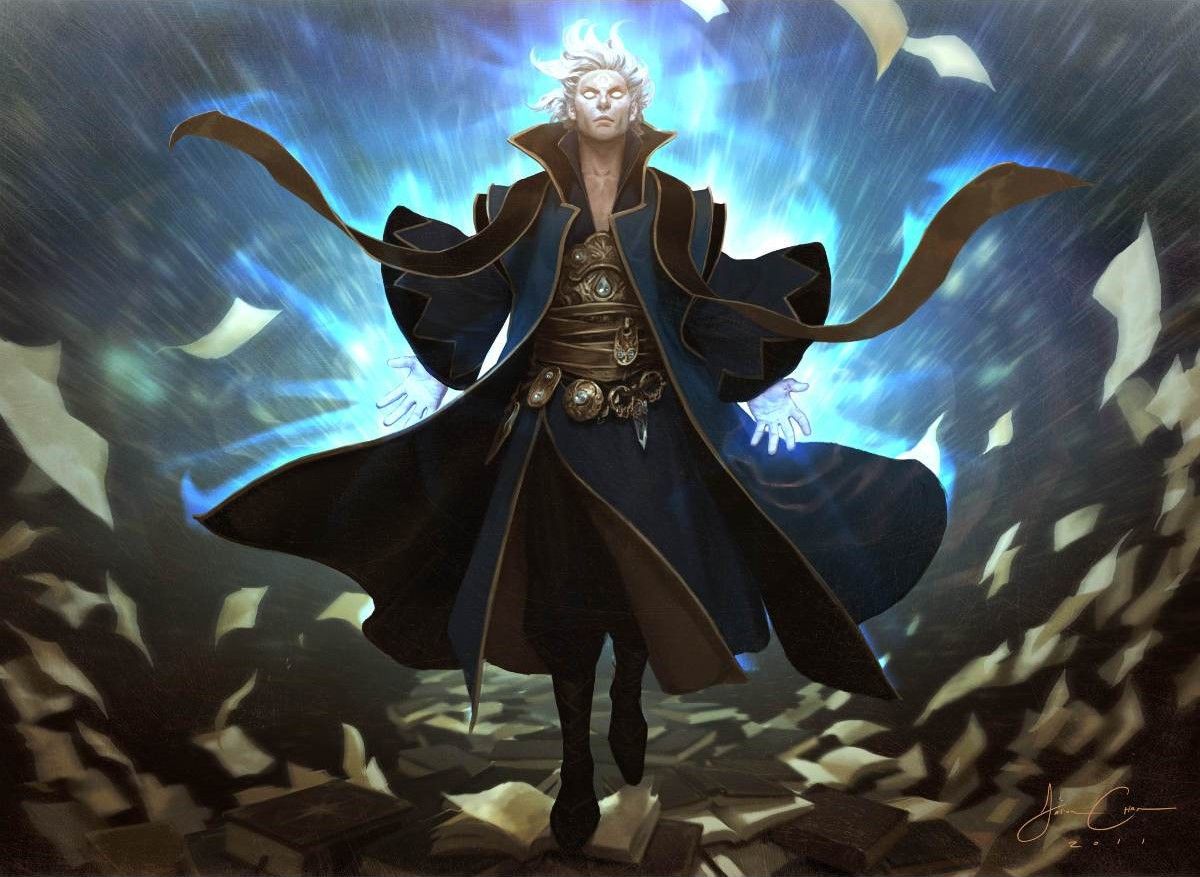
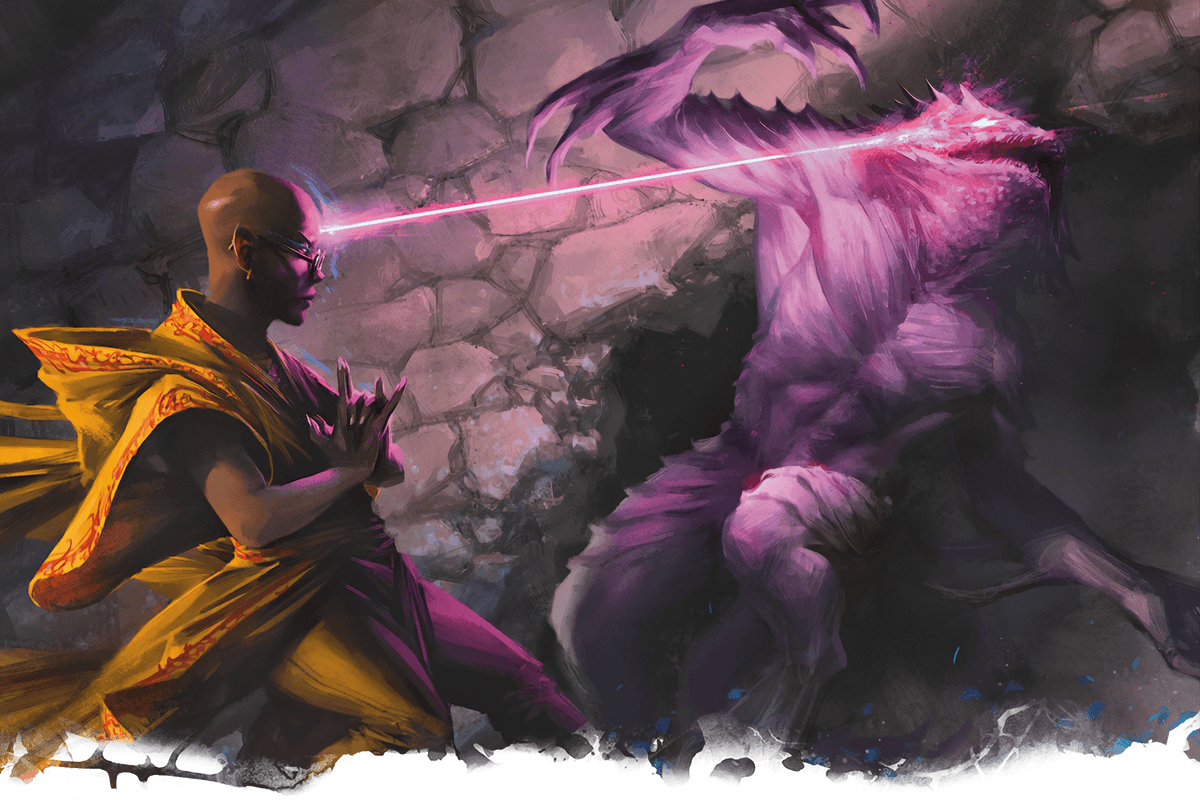
Erudite
As the night draws to a close, an elderly man remains in the streets, casually exploring the city by moonlight. Spotting an easy target, a group of pickpockets make their approach. The old man shoots them a glance, and the would-be thieves stand motionless- frozen in place.
A young gnomish woman sits in the corner of a bustling tavern, her head buried deep in a thick tome. A drunken dwarf stumbles by, spilling his tankard of ale all over the woman's book. She stands, squaring up to the much larger opponent. The dwarf bellows, excited for an easy brawl. Just then, the gnome's eyes flash white, and her scrawny physique seems to expand as she throws a powerful first punch.
Clutching a handful of glowing crystals, an elf finds herself backed into a corner. As her foes close in, she shuts her eyes tightly. Sounds of chaos surround her- screams, scrapes, and then footsteps sprinting away. She reopens her eyes to see her summoned golem give her a solemn nod before disappearing into the ether.
Erudites are all united by their use of psionics- mysterious psychic powers unlocked through rigorous mental training. These latent psychic powers are present in every living being. However, it takes a very special soul to devote themselves to unlocking their true psionic potential.
Intellect Explorers
It takes years of dedicated study and meditation for an Erudite to unlock their true psychic power. Most isolate themselves, spending their lives alone with their thoughts. An Erudite explores every corner of their mind, understanding their own psyche and learning how to use it for their powers. When they aren't studying, an Erudite is deep in meditation, applying their new knowledge to master their body and mind.
When an Erudite has mastered their psychic abilities, they return to society, and often find themselves becoming adventurers to keep their incredible mind stimulated. Others prefer to remain isolated, living the remainder of their life with their true potential realized.
Creating an Erudite
When creating an Erudite, consider your character's background. How did you become an Erudite? Why did you pursue this higher power? Did you train yourself, or did you have a teacher? If you had a teacher, how did you know them?
Also consider how you reacted to returning from isolation. Were you excited to return? Did you return by choice? How have things changed since you left?
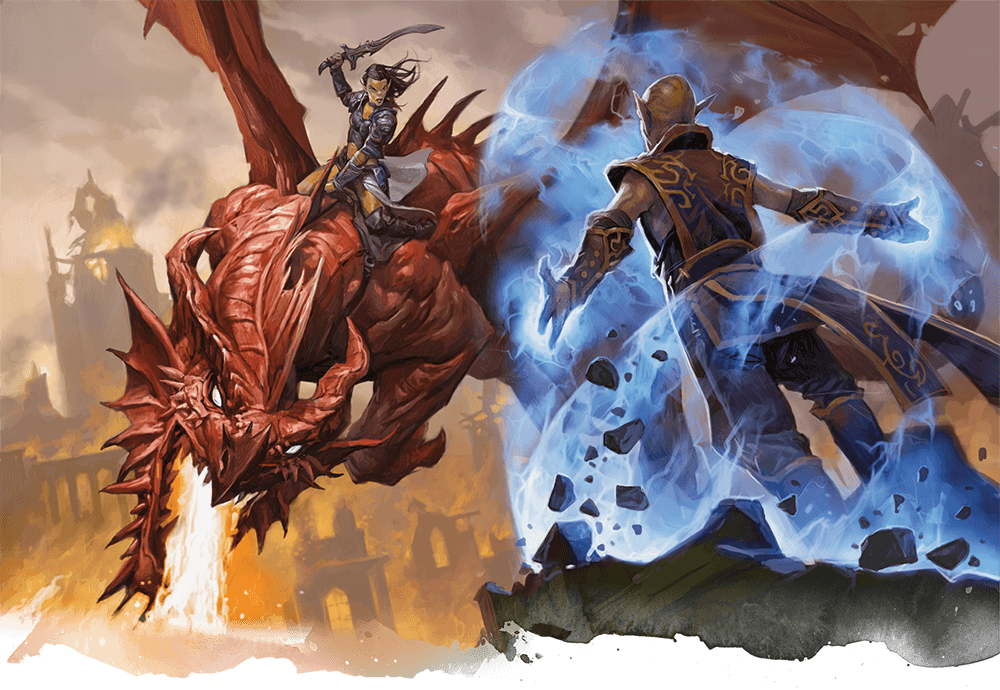
The Erudite
| Level | Proficiency Bonus | Psionic Energy Die | Features | Cantrips Known | Spells Known | 1st | 2nd | 3rd | 4th | 5th | 6th | 7th | 8th | 9th |
|---|---|---|---|---|---|---|---|---|---|---|---|---|---|---|
| 1st | +2 | - | Spellcasting, Psionics, Telepathy | 4 | 2 | 2 | — | — | — | — | — | — | — | — |
| 2nd | +2 | 6 | Psionic Talent (d6) | 4 | 3 | 3 | — | — | — | — | — | — | — | — |
| 3rd | +2 | 7 | Psionic Order | 4 | 4 | 4 | 2 | — | — | — | — | — | — | — |
| 4th | +2 | 8 | Ability Score Improvement | 5 | 5 | 4 | 3 | — | — | — | — | — | — | — |
| 5th | +3 | 9 | Psionic Talent (d8) | 5 | 6 | 4 | 3 | 2 | — | — | — | — | — | — |
| 6th | +3 | 9 | Psionic Order Feature | 5 | 7 | 4 | 3 | 3 | — | — | — | — | — | — |
| 7th | +3 | 10 | — | 5 | 8 | 4 | 3 | 3 | 1 | — | — | — | — | — |
| 8th | +3 | 11 | Ability Score Improvement | 5 | 9 | 4 | 3 | 3 | 2 | — | — | — | — | — |
| 9th | +4 | 12 | — | 5 | 10 | 4 | 3 | 3 | 3 | 1 | — | — | — | — |
| 10th | +4 | 13 | Split Mind | 6 | 11 | 4 | 3 | 3 | 3 | 2 | — | — | — | — |
| 11th | +4 | 14 | Psionic Talent (d10) | 6 | 12 | 4 | 3 | 3 | 3 | 2 | 1 | — | — | — |
| 12th | +4 | 15 | Ability Score Improvement | 6 | 12 | 4 | 3 | 3 | 3 | 2 | 1 | — | — | — |
| 13th | +5 | 16 | — | 6 | 13 | 4 | 3 | 3 | 3 | 2 | 1 | 1 | — | — |
| 14th | +5 | 17 | Psionic Order Feature | 6 | 13 | 4 | 3 | 3 | 3 | 2 | 1 | 1 | — | — |
| 15th | +5 | 17 | — | 6 | 14 | 4 | 3 | 3 | 3 | 2 | 1 | 1 | 1 | — |
| 16th | +5 | 18 | Ability Score Improvement | 6 | 14 | 4 | 3 | 3 | 3 | 2 | 1 | 1 | 1 | — |
| 17th | +6 | 18 | Psionic Talent (d12) | 6 | 15 | 4 | 3 | 3 | 3 | 2 | 1 | 1 | 1 | 1 |
| 18th | +6 | 19 | Psionic Mastery | 6 | 15 | 4 | 3 | 3 | 3 | 3 | 1 | 1 | 1 | 1 |
| 19th | +6 | 19 | Ability Score Improvement | 6 | 15 | 4 | 3 | 3 | 3 | 3 | 2 | 1 | 1 | 1 |
| 20th | +6 | 20 | Psionic Body | 6 | 15 | 4 | 3 | 3 | 3 | 3 | 2 | 2 | 1 | 1 |
Class Features
As an Erudite, you gain the following class features.
Hit Points
Hit Dice: 1d8 per erudite level
Hit Points at 1st Level: 8 + your Constitution modifier
Hit Points at Higher Levels: 1d8 (or 5) + your Constitution modifier per erudite level after 1st
Proficiences
Armor: Light armor
Weapons: Simple weapons
Tools: Calligrapher's Supplies
Saving Throws: Constitution, Intelligence
Skills: Choose three from Arcana, Deception, History, Investigation, Insight, Perception, and Persuasion.
Equipment
You start with the following equipment, in addition to the equipment granted by your background:
- any simple weapon
- (a) a diplomat's pack or (b) a scholar's pack
- leather armor
- calligrapher's supplies
Quick Build
You can make an erudite quickly by following these suggestions. First, make Intelligence your highest ability score. Your next highest score should be Constitution. Second, choose the Sage background. Third, choose the Psybeam, Friends, Mage Hand, and Mind Sliver cantrips, along with the 1st level spells Catapult and Mind Meld.
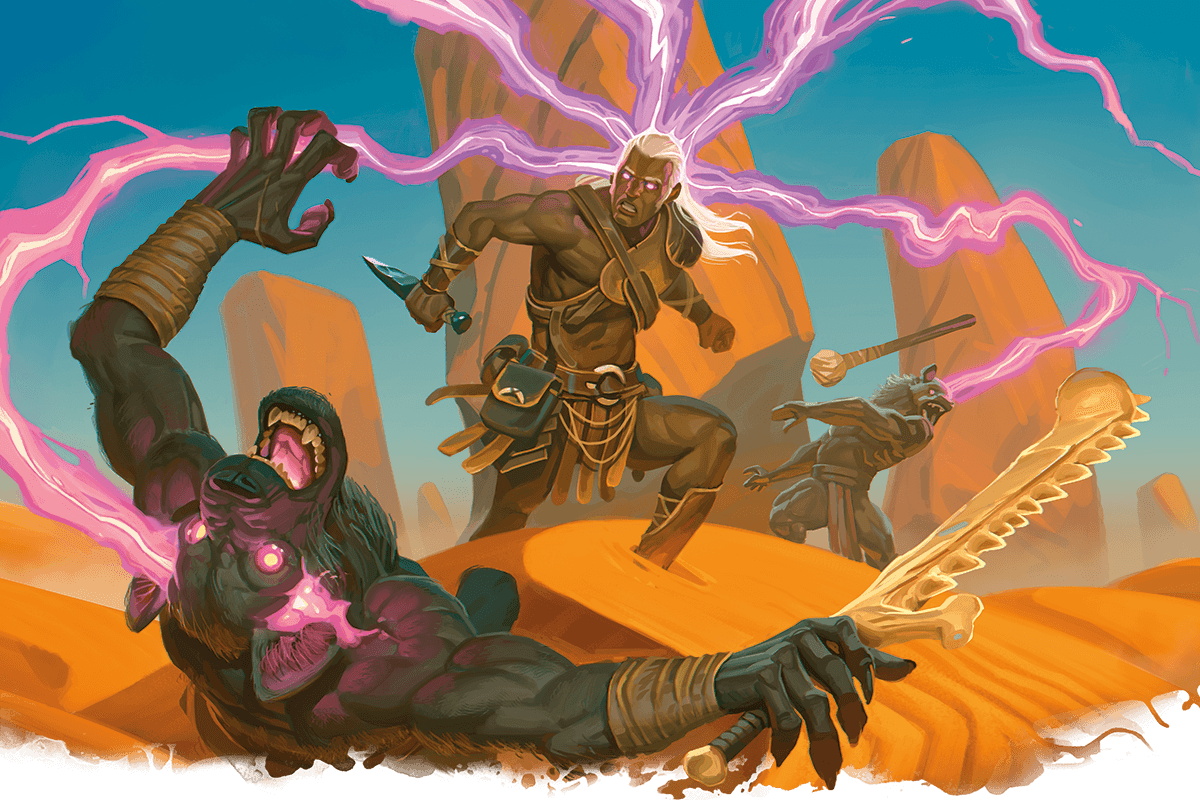

Spellcasting
Through dedicated study, or through some incredible psionic event, you have awakened the latent psychic power in your mind. This psychic power is what fuels your spells.
Cantrips
At 1st level, you know four cantrips of your choice from the erudite spell list. You learn additional erudite cantrips of your choice at higher levels, as shown in the Cantrips Known column of the Erudite table.
Spell Slots
The Erudite table shows how many spell slots you have to cast your spells of 1st level and higher. To cast one of these erudite spells, you must expend a slot of the spell's level or higher. You regain all expended spell slots when you finish a long rest. For example, if you know the 1st-level spell Bane and have a 1st-level and a 2nd-level spell slot available, you can cast Bane using either slot.
Spells Known of 1st Level and Higher
You know two 1st-level spells of your choice from the erudite spell list.
The Spells Known column of the Erudite table shows when you learn more erudite spells of your choice. Each of these spells must be of a level for which you have spell slots. For instance, when you reach 3rd level in this class, you can learn one new spell of 1st or 2nd level.
Additionally, when you gain a level in this class, you can choose one of the erudite spells you know and replace it with another spell from the erudite spell list, which also must be of a level for which you have spell slots.
Spellcasting Ability
Intelligence is your spellcasting ability for your erudite spells, since your powers are fueled by your intellect alone. You use your Intelligence whenever a spell refers to your spellcasting ability. In addition, you use your Intelligence modifier when setting the saving throw DC for an erudite spell you cast and when making an attack roll with one.
Spell save DC = 8 + your proficiency bonus + your Intelligence modifier
Spell attack modifier = your proficiency bonus + your Intelligence modifier
Psionics
Your form of spellcasting is different from that of other spellcasters. Psionics are not magical in nature, despite presenting themself as spells. Whenever you cast an erudite spell, it requires no verbal or somatic components, and it requires no material components, unless they are consumed by the spell.
Moreover, your control over your mind makes it difficult to break your spirit. You have resistance to psychic damage, and have advantage on saving throws against being charmed or frightened.
Magic vs. Psionic
Unlike past editions, the 5th edition of Dungeons & Dragons does not differentiate between magical and supernatural effects. This rarely comes up in a campaign, but with the introduction of psionics, the gray area has become much more apparent.
Thematically, spells like Detect Magic, Dispel Magic, and Antimagic Field would have no effect on spells cast via psionics. However, in campaigns with many casters, this may become a balance issue as these counters become more frequent.
It's important to discuss the mechanical differences (if any) of psionics before these sort of situations come up, so that everyone can enjoy a fun and balanced game.
Telepathy
You can speak telepathically to any creature you can see within 60 feet of you. You don’t need to share a language with the creature for it to understand your telepathic messages, but the creature must be able to understand at least one language or be telepathic itself.
As a bonus action when you’re speaking telepathically to a creature, you can give that creature the ability to speak telepathically to you until the start of your next turn. To use this ability, the creature must be within 60 feet of you and be able to see you.
Psionic Talent
At 2nd level, you harbor a wellspring of psionic energy within yourself. This energy is represented by your Psionic Energy dice, which are each a d6. You have 6 Psionic Energy dice, and you gain more as you reach higher levels, as shown in the Psionic Energy Dice column of the Erudite table. You can never have more Psionic Energy dice than shown on the table for your level. You regain all spent Psionic Energy dice when you finish a long rest.
When you reach certain levels in this class, the size of your Psionic Energy dice increases: at 5th level (d8), 11th level (d10), and 17th level (d12).
Psionic Talents
You know the 2 psionic talents of your choice, as detailed below. You gain another talent at 10th and 17th level. You can use only one talent on a spell when you cast it, unless otherwise noted.
Devastation
When you deal damage to a creature with an erudite spell, you can expend one Psionic Energy die and roll it, dealing additional psychic damage to the creature equal to the number rolled.
Duration.
When you cast an erudite spell with a duration of 1 minute or longer, you can expend one Psionic Energy die and roll it, increasing its duration by a number of minutes equal to the number rolled.
Hinderance.
When you deal damage to a creature with an erudite spell, you can expend one Psionic Energy die to hinder your foe. The next time that creature makes an attack roll, it must roll your Psionic Energy die and subtract it from the roll.
Hyperfocus.
When you make a Constitution saving throw to maintain concentration on an erudite spell, you can expend one Psionic Energy die and roll it, adding it to your total roll.
Precision.
When you cast an erudite spell and make a spell attack roll on your turn, you can expend one Psionic Energy die and roll it, adding it to your total attack roll.
Weakness.
When you cast an erudite spell that forces a creature to make a saving throw, you can expend a Psionic Energy die and roll it, subtracting the number rolled from their total roll.
Psionic Order
When you reach 3rd level, you focus your psychic knowledge on a specific form of psionics, represented by a psionic order. Choose from the Order of the Egoist, Kineticist, Nomad, Seer, or Shaper . Your choice grants you features when you choose it at 3rd level, and again at 6th and 14th levels.
Ability Score Improvement
When you reach 4th level, and again at 8th, 12th, 16th, and 19th level, you can increase one ability score of your choice by 2, or you can increase two ability scores of your choice by 1. As normal, you can’t increase an ability score above 20 using this feature.
Split Mind
At 10th level, your mastery of the mind allows you to concentrate on two erudite spells at the same time, rolling separate concentration checks for each spell.
PSIONIC MASTERY
At 18th level, whenever you roll a 1 on a Psionic Energy Die, you can re-roll it, and must use the new roll, even if it is another 1.
Psionic Body
At 20th level, your mastery of psionic power causes your mind to transcend the body. Your physical form is infused with psionic energy. You gain the following benefits:
- Your Intelligence score increases by 4. Your maximum for that score is now 24.
- You no longer age.
- You are immune to psychic damage, as well as the charmed and frightened conditions.
- You gain a flying speed equal to 10 times your Intelligence modifier (minimum of 10 feet), and can hover.
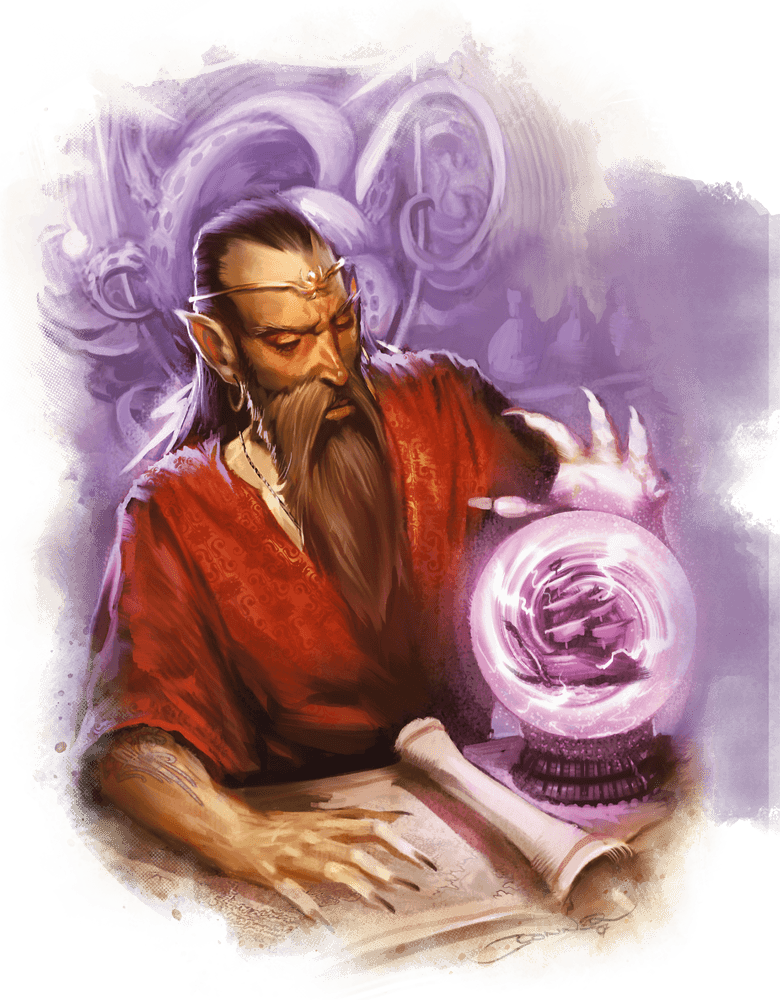
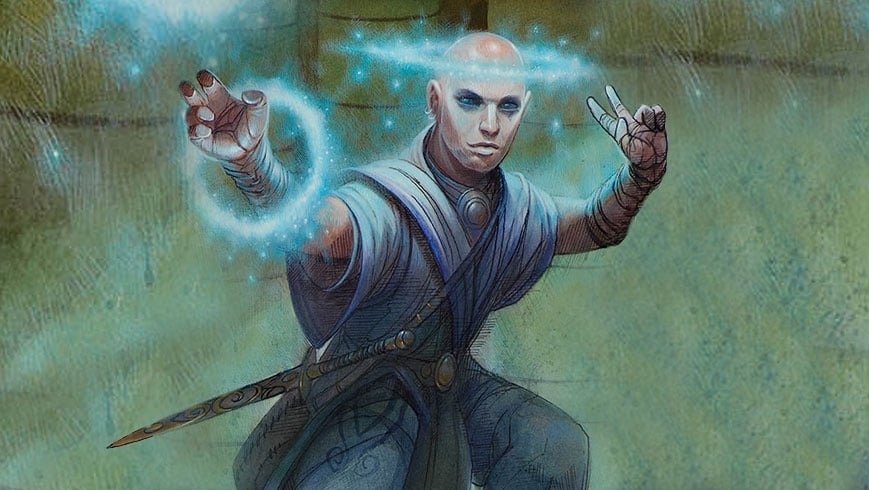

Psionic Orders
Order of the Egoist
Erudites of the Order of the Egoist specialize in the psionic discipline of psychometabolism. Egoists use their psionic power to manipulate the physiology of themselves, transforming into fearsome fighters.
Bonus Proficiencies
When you choose this order at 3rd level, you gain proficiency in martial weapons, medium armor, and shields.
Fortify Body
Also at 3rd level, you learn to enhance your physical strength using your psionic powers. As a bonus action on your turn, you can expend one spell slot to fortify your body, granting you the following benefits:
- You gain temporary hit points equal to five times the spell slot’s level.
- When you attack with a melee weapon, you can use your Intelligence modifier, instead of Strength or Dexterity modifier, for the attack and damage rolls.
- Once per turn when you hit a creature with a melee weapon attack, you can deal additional damage equal to your Psionic Energy die.
These benefits last for 10 minutes, or until you lose all these temporary hit points.
Extra Attack
Beginning at 6th level, you can attack twice, instead of once, whenever you take the Attack action on your turn.
Psionic Strength
At 14th level, you have honed your mind and body to perfection. Whenever you have temporary hit points granted by your Fortify Body feature, you also gain the following benefits:
- You gain a +1 bonus to your AC.
- You gain resistance to bludgeoning, piercing, and slashing damage.
- Whenever you make an ability check or saving throw using Strength or Dexterity, you can use your Intelligence score instead.
Order of the Kineticist
Erudites of the Order of the Kineticist specialize in the psionic discipline of psychokinesis. Kineticists are masters of energy, and can use their psionic powers to create devastating effects.
Devastating Arsenal
Starting when you choose this order at 3rd level, you learn 3 cantrips of your choice from the wizard spell list. These cantrips must be from the school of evocation. These cantrips count as erudite spells for you, and do not count against your total number of cantrips known.
Energy Snap
Also at 3rd level, you learn to quickly access your psionic power to damage your foes. As a bonus action on your turn, you can expend one spell slot and make a spell attack roll against a creature you can see within 30 feet of you. On a hit, the creature takes psychic damage equal to one roll of your Psionic Energy die per slot level spent.
Powerful Mind
Beginning at 6th level, you add your Intelligence modifier to the damage of your erudite cantrips, as well as the damage of your Energy Snap feature.
Mass Destruction
At 14th level, you can focus your psychic power to maximize your destruction. When you cast an erudite spell of 1st level or higher with a duration of Instantaneous that deals damage, you can expend a second spell slot of the same level to deal maximum damage, rather than rolling.
Order of the Nomad
Erudites of the Order of the Nomad specialize in the psionic discipline of psychoportation. Nomads wield these psionic powers that propel or displace objects in space and time- be it telekinesis, teleportation, or even time manipulation.
Fast Movement
Starting when you choose this order at 3rd level, your speed increases by 10 feet while you aren't wearing heavy armor.
Psionic Displacement
Also at 3rd level, you learn to harness a sliver of psionic energy to propel yourself through space. Whenever you cast an erudite spell of 1st level or higher, you can immediately teleport a number of feet up to 20 + 5 times the spell’s level. You can teleport before or after you cast the spell.
Swift Psionics
Starting at 6th level, whenever you use your action to cast an erudite cantrip and deal damage, you can use your bonus action to cast the same cantrip a second time against the same creature, dealing half damage on a hit.
Time Skip
At 14th level, you can momentarily stop time around you, just long enough to give you an edge. On your turn, you can slip out of time, granting you the following benefits until the end of your current turn:
- Your movement speed is doubled, and your movement does not provoke opportunity attacks.
- You can take one additional action and one additional bonus action on your turn.
Once you use this power, you can’t do so again until you finish a long rest.
Order of the Seer
Erudites of the Order of the Seer specialize in a form of psionics known as clairsentience. Much like a diviner, these seers use their precognition to aid their allies, as well as perform various forms of espionage.
Psychic Sight
Starting when you choose this order at 3rd level, you gain proficiency in the Perception skill, if you aren’t proficient already. Moreover, whenever you make an ability check that relies on that skill, you can use your Intelligence modifier for the roll, rather than Wisdom.
Fate Points
Starting when you choose this order at 3rd level, you can use your psionic power to manipulate events as they unfold. Whenever you cast an erudite spell of 1st level or higher, you gain a number of fate points equal to the spell’s level. Whenever you or a creature you can see within 60 feet of you makes an ability check, attack roll, or saving throw, you can expend a number of these fate points up to your proficiency bonus as a reaction and add or subtract them from the roll.
The maximum number of fate points you can have at any time is equal to your erudite level. These fate points are fleeting, and only last for 1 minute- after which, they vanish.
Precognitive Casting
At 6th level, you learn to use your precognition to turn a missed attack into a new opportunity. Once per turn when you miss a creature with a weapon or spell attack, you can use your reaction to reroll your attack, and must use the new roll.
Out of Body
Beginning at 14th level, you can project your consciousness beyond your body to view places that would otherwise be impossible. As an action, you can cause your spirit to leave your body. When you do this, your body is unconscious, and cannot be awoken. Your spirit, however, stays conscious. Your spirit is invisible and incapacitated, but can otherwise act normally. You can move through walls without difficulty, and can see and hear as though you were physically there. You can remain out of body for a number of minutes equal to your erudite level, after which you return to your body. You can also end this state early (no action required). Once you have used this power, you can’t do so again until you finish a long rest.
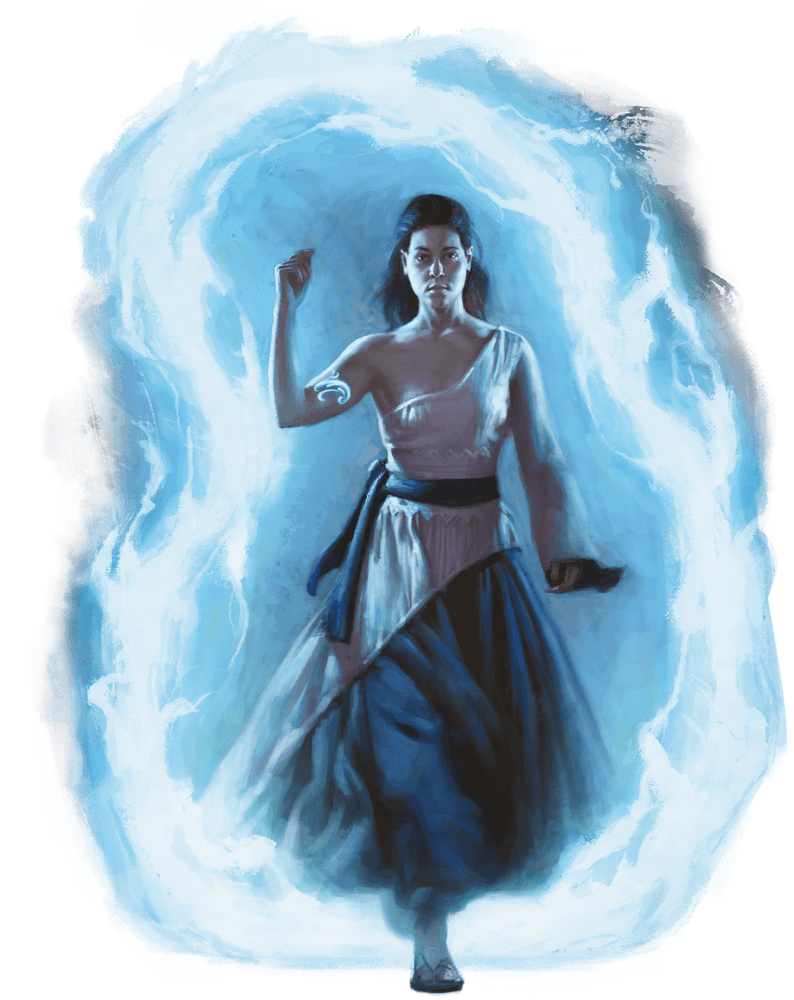
Order of the Shaper
Erudites of the Order of the Shaper specialize in the psionic discipline of metacreativity. Shapers draw from the matter of the Astral Plane, creating semi-physical objects seemingly from thin air.
Shaper Spells
Starting when you choose this order at 3rd level, you learn an additional spell of 2nd level or higher when you reach certain levels in this class, as shown in the Shaper Spells table. Each spell counts as an erudite spell for you, but it doesn't count against the number of erudite spells you know.
Shaper Spells
| Erudite Level | Spell |
|---|---|
| 3 | Spiritual Weapon |
| 5 | Phantom Steed |
| 7 | Summon Construct |
| 9 | Creation |
Manifest Psicrystal
Also at 3rd level, you can harness the matter of the Astral Plane to create a small crystal of psionic energy. As an action you can create a Psicrystal in your free hand, which is a tiny magical object. The Psicrystal has AC equal to your Spell Save DC and hit points equal to twice your erudite level. While a creature is holding or wearing the Psicrystal, they gain the following benefits:
- They gain a +1 bonus to their AC.
- They gain all the benefits of your Telepathy feature.
- Whenever the creature makes an ability check, they can do so with advantage. Once a creature has benefited from this, they can’t do so again until they finish a long rest.
You can only have one Psicrystal manifested at a time. If you attempt to create another, the first shatters and vanishes.
Greater Psicrystals
Beginning at 6th level, you can have two Psicrystals manifested at one time. Moreover, your Psicrystals grant a +2 bonus to AC, rather than +1.
Additionally, your mental link to your Psicrystals allows you to attack from more advantageous positions. Whenever you cast an erudite spell, you can do so as though you were in the space of one of your Psicrystals.
Astral Seed
At 14th level, you can create a special sort of Psicrystal known as an Astral Seed. Over the course of a long rest you create this Astral Seed, linking your soul to it. Like a normal Psicrystal, this Astral Seed has AC equal to your Spell Save DC and hit points equal to twice your erudite level.
Your Astral Seed serves as a sort of back-up for your consciousness. If you die, your soul transfers to the Astral Seed, which then glows faintly. Your physical remains, if they exist, become inert and cannot be restored to life. Your soul remains in the Astral Seed indefinitely, and you can see and hear from it.
At any point while your soul resides in the Astral Seed, you can choose to regrow your body. Over the course of 1d6 + 4 days, your body is woven together by threads of astral material and clumps of ethereal ectoplasm. At the end of the allotted time, you emerge fully restored, though you lack all your equipment. If you take damage at any point during this growth period, your soul is destroyed, and you cannot be restored to life by anything short of a Wish spell.
Optional Rule: Multiclassing
Prerequisites. To qualify for multiclassing into the erudite class, you must meet these prerequisites: Intelligence 13.
Proficiencies. When you multiclass into the erudite class, you gain the following proficiencies: calligrapher’s supplies


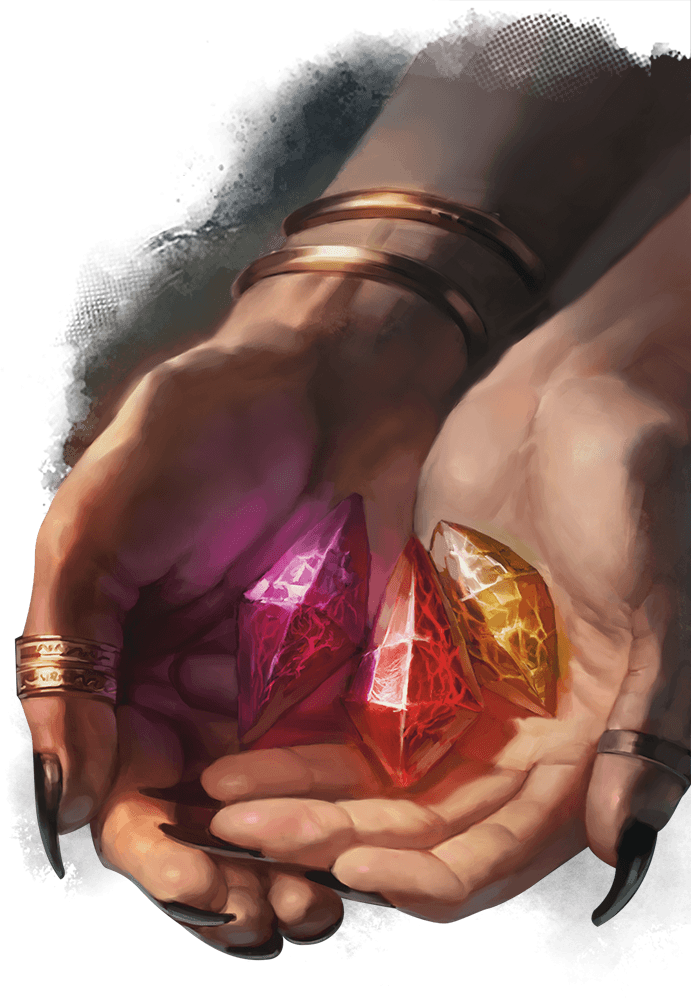
Erudite Spell List
Cantrips (0 Level)
Blade Ward
Control Flames
Dancing Lights
Encode Thoughts
Friends
Guidance
Light
Mage Hand
Message
Mind Sliver
Minor Illusion
Psybeam
Resistance
Thaumaturgy
True Strike
1st Level
Bane
Catapult
Cause Fear
Charm Person
Command
Comprehend Languages
Detect Evil and Good
Detect Magic
Detect Poison and Disease
Dissonant Whispers
Expeditious Retreat
Feather Fall
Identify
Jump
Mage Armor
Mind Meld
Shield
Silent Image
Sleep
Tasha’s Hideous Laughter
Unseen Servant
2nd Level
Augury
Beast Sense
Blindness/Deafness
Blur
Calm Emotions
Crown of Madness
Darkvision
Deja Vu
Detect Thoughts
Enhance Ability
Enthrall
Hold Person
Invisibility
Levitate
Locate Animals or Plants
Locate Object
Magic Weapon
Mind Spike
Mirror Image
Misty Step
Pass Without Trace
Ray of Enfeeblement
See Invisibility
Shadow Blade
Silence
Suggestion
Tasha’s Mind Whip
Warding Bond
3rd Level
Blink
Catnap
Clairvoyance
Counterspell
Dispel Magic
Enemies Abound
Fear
Feign Death
Fly
Haste
Hypnotic Pattern
Intellect Fortress
Life Transference
Major Image
Nondetection
Protection from Energy
Sending
Slow
Tongues
4th Level
Arcane Eye
Charm Monster
Compulsion
Confusion
Dimension Door
Divination
Dominate Beast
Freedom of Movement
Greater Invisibility
Hallucinatory Terrain
Locate Creature
Phantasmal Killer
Raulothim’s Psychic Lance
5th Level
Antilife Shell
Bigby’s Hand
Contact Other Plane
Dispel Evil and Good
Dominate Person
Dream
Far Step
Geas
Hold Monster
Legend Lore
Mislead
Modify Memory
Negative Energy Flood
Planar Binding
Scrying
Seeming
Skill Empowerment
Synaptic Static
Telekinesis
6th Level
Contingency
Disintegrate
Eyebite
Find the Path
Forbiddance
Harm
Mass Suggestion
Mental Prison
Otto’s Irresistible Dance
Scatter
Soul Cage
Tenser’s Transformation
True Seeing
Word of Recall
7th Level
Dream of the Blue Veil
Forcecage
Mirage Arcane
Plane Shift
Power Word: Pain
Project Image
Sequester
Teleport
8th Level
Antimagic Field
Antipathy/Sympathy
Demiplane
Feeblemind
Glibness
Maze
Mind Blank
Power Word: Stun
Telepathy
9th Level
Astral Projection
Foresight
Imprisonment
Invulnerability
Power Word: Kill
Psychic Scream
Time Stop
Weird
New Spells
Psybeam
Evocation Cantrip
Casting Time: 1 action
Range: 60 feet
Components: V, S
Duration: Instantaneous
Classes: Erudite
A beam of psychic energy streaks toward a creature within range. Make a ranged spell attack against the target. On a hit, the target takes 1d8 psychic damage.
At Higher Levels. The spell creates more than one beam when you reach higher levels: two beams at 5th level, three beams at 11th level, and four beams at 17th level. You can direct the beams at the same target or at different ones. Make a separate attack roll for each beam.
Mind Meld
1st-Level Divination
Casting Time: 1 action
Range: Touch
Components: V, S
Duration: Concentration, up to 1 hour
Classes: Erudite
You touch the forehead of a willing creature, creating a mental link between the two of you. For the duration, your mental abilities are combined. Whenever either of you makes an ability check using Intelligence, Wisdom, or Charisma, you can use either creature’s ability score for the check.
At Higher Levels. When you cast this spell using a spell slot of 3rd or 4th level, you can maintain your concentration on the spell for up to 8 hours. When you use a spell slot of 5th level or higher, you can maintain your concentration on the spell for up to 24 hours.
Deja Vu
2nd-Level Enchantment
Casting Time: 1 reaction, which you take when a creature within 60 feet of you takes any action.
Range: 60 feet
Components: V, S
Duration: 1 Round
Classes: Bard, Erudite, Wizard
You mentally influence a creature to repeat its previous actions. The creature must make a Wisdom saving throw. On a failed save, the creature must repeat the triggering action on its next turn. If the creature cannot repeat the action (for reasons such as lack of spell slots, or limited use abilities), it takes 3d8 psychic damage, and the spell ends.
Design Notes
On Terminology
The Erudite draws its name from the 3.5 variant class of the same name. In 3.5, the Erudite was a variant of the Psion, without the need to focus on a single discipline. If you are familiar with the 3.5 Erudite (or Psion), you'll likely recognize quite a few ability names such as Psicrystals or Fate Points.
To be transparent, I have never played either 3.5 class, and the naming conventions are mostly irrelevant to the abilities (THIS IS NOT A 3.5 CONVERSION). Similarly, there's also some overlap from the various Unearthed Arcana Mystic classes from Wizards of the Coast.
Fitting 5e's Casters' Unspoken Rule
There are 3 different casting stats in 5e: Intelligence, Wisdom, and Charisma. What some of you may not know, is that there are specific patterns to follow as far as which classes use these stats. Wisdom has two full-casters, and one half-caster. One full caster has a d6 hit die, the other has a d8. Charisma follows this same trend. So, since Intelligence has a half-caster as well as a d6 full-caster in the Wizard, the Erudite fits in perfectly as the d8 full-caster. Moreover, the Wisdom full-casters receive their subclasses at 1st and 2nd level. Charisma full-casters receive theirs at 1st and 3rd level. Wizards receive theirs at 2nd level, so in order to keep a new combination, Erudites receive theirs at 3rd level. Is this pedantic? Yes. Am I reading too far into this? Probably, but once I saw this pattern I couldn't not follow it, right?
Following Tasha's Lead
The biggest differene between the Erudite and the various Psionic homebrews would be the introduction of the Psionic Energy Die. Since the release of Tasha's Cauldron of Everything, it's become apparent that the Psionic Energy Die is the calling card of a psionic character (Aberrant Mind Sorcerer is a bit of an outlier). These dice are used to power abilities relevant to the base class's powers- Fighters get better damage and athletics, rogues get better ability checks, etc. So as a full-caster, I wanted the Erudite's dice features to be similar to metamagic of sorcerers, without stepping on their toes. Beyond that, there is a slight difference in the progression of an Erudite's Psionic Energy Dice. While the Psi Warrior and Soulknife have a pool of dice equal to twice their proficiency bonus, the Erudite has a set number. This is because I wanted the "true" psionic class to have more Psionic Energy Dice than the subclasses, without making a two level dip ridiculously strong. The progression roughly evens out to three times your proficiency bonus, with a slower progression in between so there aren't any jumps.
Subclass Features
The Erudite subclasses all follow a relatively simple formula. At 3rd level, they gain two features: A new utility, similar to a proficiency, as well as a new way to use their spell slots. Erudites have primarily utility spells on their spell list, so in order to make them not a cantrip-blaster, I wanted to expand upon their usefulness in the subclasses. The Nomad and the Seer subclasses gain features that trigger when they cast a leveled spell. The Egoist and Kineticist gain additional bonus actions that spend spell slots. The Shaper is a bit of an odd one out, gaining new spells to use their slots on- though their few new spells are fairly strong. At 6th level, each subclass gains some sort of damage boost- extra attack, bonus damage, quickened casting, re-rolls, and casting from various ranges. Finally, at 14th level, the subclasses receive their capstone.
New Spells
Every class in 5th edition (other than the Artificer, for some reason) has their own signature spells. I've made two Erudite specific spells, as well as one more that belongs to multiple lists. Psybeam is the Erudite's bread and butter, similar to the Warlock's Eldritch Blast. Psybeam is less damaging, only a d8, to not draw away from the Erudite's primary focus of utility. Mind Meld is a simple 1st level spell allowing you to share your intellect with another creature. This is mostly to be used out of combat, but since a higher level Erudite can concentrate on two spells at once, there could be some niche situations where it could be useful in combat. Finally, Deja Vu is a spell to simply... redo an action. This is incredibly situational, but can be incredibly useful. For instance, if a creature uses the Disengage action, you can force them to do so again, wasting their next turn. You also might notice that these new spells all have verbal and somatic components! If they're Erudite exclusive, it seems a little pointless right? Well, they're mostly in place to prevent Bards or characters with Magic Initiate from getting free psionics. Erudites ignore these components anyway, so it works out.
If you read all this, thank you for checking out my class! I hope you enjoy it, and if you have any strong opinions I would love to hear them!
All art credit to Wizards of the Coast